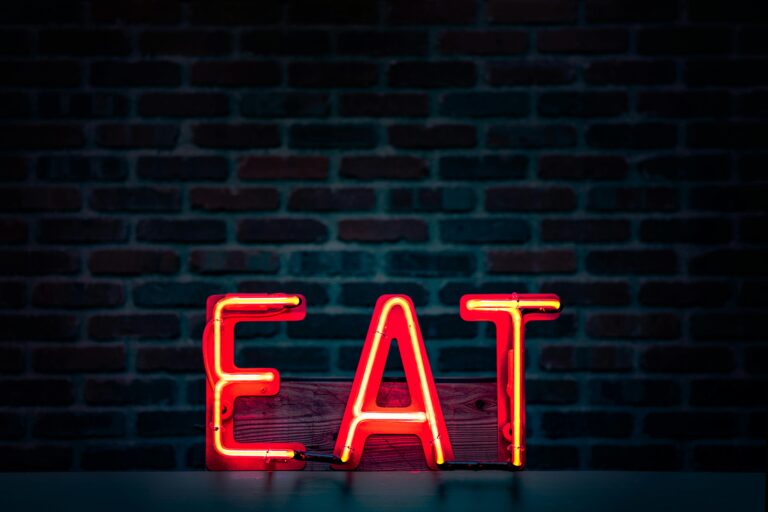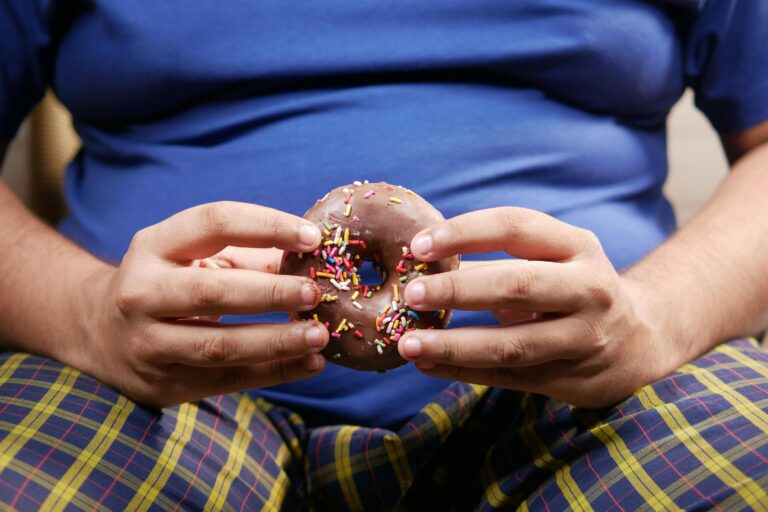Maybe it was during the turbulence on your last flight, or before a particularly important doctor’s appointment. You might even be feeling anxiety right now at the thought of reading an article this long.
Anxiety can sometimes feel like you’re caught in a storm, with no shelter in sight. It’s like a whirlwind of overwhelming thoughts, emotions, and pent-up energy that can leave you feeling totally vulnerable.
First things first: if you’re reading this because you’ve been dealing with anxiety, please know that you’re not alone. Understanding anxiety, its symptoms, and its causes is the first step towards calming these waters and reconnecting with your body and mind.
This guide is here to help you understand four things:
- What anxiety actually is;
- How it manifests itself;
- What causes anxiety, and;
- Actionable steps you can take in your life to prevent it.
As you’ll learn, the key to managing your anxiety is learning to cultivate a balanced lifestyle that addresses the physical, emotional, and spiritual needs that all humans require to feel their best.
What is Anxiety?
Anxiety is classified as a mental illness, and in some cases even a genuine disability.Because it isn’t a physical illness like cancer or yellow fever, trying to describe it can be similar to trying to explain a dream you had—it feels abstract and fleeting.
To start off, let’s take a look at where anxiety came from.
Anxiety As a Biological Mechanism
Historically speaking, anxiety is a deeply ingrained biological mechanism inherited from our ancestors. Thousands of years ago, this mechanism served a vital purpose in keeping our ancestors alert to dangers lurking in their environment. It functioned as part of the fear response.When faced with a threat—like a predator in the wilderness—their bodies would trigger a fight-or-flight response, releasing adrenaline and cortisol to heighten their senses and prepare for immediate action. For them, stress and anxiety were incredibly useful, and sometimes even life-saving.
Although most of us no longer encounter such life-threatening situations in our daily lives, this ancient response system persists, activating in many of us the same reaction to perceived threats in our modern environment.
21st Century “Stressors”
In the USA in 2023, the biggest problems most of us face in our day-to-day lives utterly pale in comparison to the dangers our ancestors stood down. So why do so many people today still struggle with anxiety? Shouldn’t it have gone away as the threats did?The reality is that our overly satiating modern lifestyle has majorly lowered the bar of what counts as a stressor. This lowered bar causes our stress response system to activate over problems that are often rather inconsequential. And because these trivial concerns are ever-present in modern life, our bodies can sometimes remain in constant states of anxious arousal, overly activating the biological stress response system.
The resulting anxiety can manifest in a host of unpleasant symptoms, which we’ll get into later. These symptoms include chronic worry, irritability, and even physical symptoms like headaches and insomnia.
Anxiety’s One Redeeming Quality
This isn’t to say that our biological stress-response system is all bad in the 21st century. There’s a little-known term called “eustress,” which refers to healthy levels of stress. Think about it—most people feel the happiest and most fulfilled when they’re physically and intellectually challenged—and this necessarily entails small amounts of stress. So in the right quantities, stress can actually lead to better productivity and increased happiness.The most important thing is to learn how to effectively manage your stress levels. You’ll need to be able to embrace stress when it’s beneficial, but then get away from it when it turns into true anxiety.
Types of Anxiety Disorders
Now that we have a basic overview of what anxiety is and where it came from, let’s take a closer look at the specific forms of anxiety most people struggle with today.Generalized Anxiety Disorder
Generalized Anxiety Disorder is the most common form of anxiety, and its main symptoms are simple: constant feelings of stress and worry.Generalized anxiety is unique from most specific phobias and disorders—which we’ll get into below—because there are no common factors, people, or situations with which it’s associated. People with generalized anxiety disorder simply find themselves in constant states of worry about no recurring theme in particular—it could be work, school, health, relationships, or anything else.
People with generalized anxiety disorder are often able to put on a good front, while suffering exquisitely on the inside. One of your friends might be suffering from this constantly, and you may never know it unless they open up to you about it.
Another key component of generalized anxiety disorder is that the anxiety people feel is usually way out of proportion with the reality of their situation. They might expect disaster at every turn, even when there’s no actual reason to be worried about anything. This constant worry takes a toll after a while, and it can quite easily interfere with their everyday lives, hindering their ability to function in social settings.
Panic Disorder
Panic disorder differs from generalized anxiety disorder in that, instead of a constant, looming feeling of worry, there are separate bouts of severe anxiety and fear. These moments are best described as “episodes” of extreme panic, and they are both draining and demoralizing for anyone who experiences them.Symptoms include shaking, sweating, inability to take a deep breath, and general feelings of hopelessness and lack of control. People who have been diagnosed with panic disorder often live in constant fear of further attacks, which may even lead to them avoiding places or situations where they’ve had attacks before.
The exact cause of panic disorder is not entirely known, but it’s believed to be a combination of things, including genetic, environmental, and psychological factors. It stands to reason that panic disorders are a manifestation of the lowered bar of 21st century stress mentioned earlier. As time goes on, it seems like it takes less and less to set people off.
It’s interesting to note that panic disorder often coexists with other mental health conditions like depression or substance-use disorders. The good news is that panic disorders are absolutely treatable, and if the right steps are taken, people suffering from this condition can lead normal and fulfilling lives.
Phobia-Related Anxiety Disorders
Anxiety is sometimes caused by a specific phobia, which is an irrational fear of a specific situation, object, or activity.Phobia-related anxiety is always centered around something specific, manifesting as an intense fear that sometimes even outlasts the situation itself. As one example, a person with claustrophobia will have an unreasonable fear of small, closed-off spaces. In the right situation, this fear will trigger symptoms of anxiety, such as rapid heartbeat, trembling, and feelings of intense unease. Phobias even sometimes lead people to avoid ordinary situations—like riding an elevator, which most people can handle without any issues.
One of the most common phobia-related anxiety disorders is social phobia. A person with social phobia will experience overwhelming worry and self-consciousness about everyday social situations. They fixate on others judging them, or being embarrassed or ridiculed. This fear can be so severe that it will get in the way of going to work or attending school. People with social phobia may worry about these kinds of situations for weeks before they happen.
Causes Of Anxiety
We mentioned earlier that the bar of what counts as a stressor seems to have been seriously lowered in the 21st century. Our ancestors felt anxiety when their villages were being raided, but we feel it when we don’t get a lot of likes on our Instagram posts. What gives?It turns out that there’s a reason for this change—actually, many reasons. In this section, we’ll break down the most common causes of anxiety in our modern era.
Anxiety From an Unhealthy Lifestyle
It may sound like a bunch of self-help, “live your best life” nonsense, but it’s the truth: leading a balanced lifestyle is the ultimate safeguard against anxiety.Our chaotic, haphazard schedules, coupled with poor dietary habits, inadequate physical activity, and lack of quality sleep are often the prime mover for anxiety.
Poor nutrition leaves our bodies deprived of essential nutrients required for optimal functioning of our brains and nervous systems. Lack of sleep and exercise further weaken our resilience to stress, trapping us in a vicious cycle of increasing anxiety.
There’s no need to overthink it, and there are no hacks to be learned here. Eat a natural, nutritious diet, get regular exercise and adequate sleep, and even engage in daily mindfulness/thankfulness practices.
One helpful tip is to treat your body like you do your car. Your car requires regular upkeep and maintenance, and if you mistreat it over the long-term, its performance and lifespan will suffer dramatically. That said, if you’re one of those people who ignores your check-engine light until it goes off on its own, this probably isn’t the best advice for you.
Anxiety From Digestive Issues
The gut is commonly referred to as the “second brain,” and for good reason. It’s a key aspect of our health that is very often overlooked. You may be surprised to learn that the gut is also home to a significant portion of our body’s serotonin, which is a primary mood-regulation chemical. It produces 95% of it, to be exact!Poor digestion and chronic gut inflammation—which is often caused by a diet high in sugar, unhealthy fats, and empty calories—is a prime cause of anxiety. Studies tell us that chronic gut and digestive inflammation not only induce anxiety-related symptoms, but also alter normal nervous system activity.
Poor digestion also often leads to constipation, a condition that causes both physical discomfort and anxiety. When your body isn’t efficiently processing the food you eat, it can cause feelings of discomfort and bloating, which in turn leads to painful inflammation. It’s a known fact that constant feelings of physical discomfort can trigger feelings of unease and worry, exacerbating or even sparking anxiety disorders.
Clearly, maintaining good digestive health is not just about feeling physically well—it’s also about nurturing our mental well-being. Thus, poor digestion and constipation may play a more significant role in the development of anxiety disorders than you’re aware.
Anxiety From Hormone Levels
Hormones affect processes all throughout the body, so it stands to reason that they would play a role in managing anxiety.In particular, testosterone—which is often associated with male virility and strength—is a key player in the mental health landscape, for both genders. Low levels of this hormone have been linked to increased anxiety in both men and women. This is largely due to testosterone’s critical role in brain health and regulation of chemicals like dopamine and serotonin.
Serotonin, dopamine, and other chemicals affect our mood, stress response, and overall mental well-being. When testosterone levels dip, the delicate balance of these chemicals can become skewed, potentially leading to heightened anxiety.
For women, estrogen plays a similar role, managing and regulating chemicals in the brain. In the same way, if levels drop below normal or surge too high, the resulting chemical imbalance can cause anxiety.
Anxiety From Harmful Mental Patterns
Harmful, repetitive mental patterns play a huge role in causing anxiety. Patterns like OCD (obsessive-compulsive disorder) can trap individuals in a vicious cycle of worry and fear. Instead of constructively addressing problems, individuals with anxiety may find themselves endlessly replaying distressing scenarios or dwelling on negative aspects of their lives.This habit of recurring negative thoughts is especially insidious, because it doesn’t always just cause anxiety in the first place. Often, anxiety starts due to an unhealthy lifestyle, hormone issues, or digestive problems, only to be amplified by negative thought patterns, creating an escalating feedback loop that is hard to break out of.
Genetic Anxiety
While it’s rather rare, anxiety has been proven to be genetic in certain cases. A clear sign that anxiety is genetic rather than learned is if it develops in young children, namely under 20. If you’re over 20 when you experience anxiety for the first time, it’s likely not genetic.Of course, one of the dangers of classifying anxiety as genetic is that people tend to assume more of a fatalistic mindset and fail to take action.
Regardless of whether your anxiety is genetic or learned, it can absolutely still be beaten—more on that later.
Symptoms of Anxiety
Anxiety can manifest itself in a variety of ways, each as unique as the individuals experiencing it. If you’re reading this article, you’ve probably experienced some of them yourself.Common Anxiety Symptoms
There are certain specific symptoms that are commonly associated with anxiety disorders. Most people who’ve dealt with anxiety before will no doubt find these familiar.Here are the top five:• Excessive worrying: This is usually the most common symptom of general anxiety disorder. It involves an excessive, persistent worry and fear about everyday situations. With excessive worrying, you’re usually consciously aware that you’re experiencing anxiety.• Feeling agitated: When someone is feeling anxious, their sympathetic nervous system often goes into overdrive. This can result in symptoms such as a racing heart, sweaty palms, and shaky hands. This can often lead to full-on anxiety attacks, which we’ll discuss in the next section below.• Restlessness: Often described as feeling “on edge,” restlessness goes hand-in-hand with anxiety. You might also experience irritability and a short temper.• Fatigue: It might seem contradictory, but alongside restlessness, anxiety can also cause fatigue, or tiredness. This often occurs after prolonged anxiety, as the body simply can only maintain such a heightened state for so long.• Difficulty concentrating: Many people with anxiety find their minds are filled with thoughts, preventing them from concentrating or focusing on any one task. This is another scenario where you’ll likely be consciously aware that you’re anxious.While these symptoms can all be indicative of anxiety, they aren’t always so. They may also be associated with other conditions, which is why it’s a good idea to consult a mental health professional for a proper diagnosis—and no, Chat GPT doesn’t count.
Emergency Anxiety Symptoms
At its highest levels, anxiety can manifest in potentially dangerous physical symptoms, including high blood pressure, chest pain, nausea, dizziness, diarrhea, and even seizures.When stress kicks our body’s fight-or-flight response into gear, it releases a flood of adrenaline that can increase heart rate and blood pressure. In the most severe cases, this physiological response might lead to chest discomfort or pain, often misinterpreted as a cardiac event. Similarly, the emotional distress associated with anxiety can cause symptoms like nausea, as the body’s normal digestive processes are disrupted. In extreme cases, intense or prolonged anxiety may trigger seizures in individuals with certain types of epilepsy.
These severe symptoms are what are known as anxiety attacks. The sad truth is that anxiety attacks are much more common in individuals who experience chronic stress, lack a proper sleep routine, and do not exercise.
While rare, anxiety attacks should serve to remind you that anxiety is not just all in your head—it can have tangible, physical effects on your body if not managed properly.
How To Calm Your Anxiety
Let’s take a break from the strictly educational stuff and move into the practical.The fight with anxiety is not a battle you always have to lose. On the contrary, there are many methods you can use to calm yourself when you’re in the thick of it and even prevent it from occurring in the first place.
Learn To Adapt
One of the best ways to overcome anxiety is to learn how to manage your 21st century stressors. Building mental strength isn’t exactly the easiest thing in the world, but studies have consistently demonstrated that resilience is correlated with reduced anxiety.Just as our muscles grow stronger when challenged, our minds too can be trained to handle stress with greater fortitude. By deliberately placing ourselves in situations that demand focus and composure, we can teach our nervous system to better tolerate stress, thus reducing our susceptibility to anxiety.
Exercise is one such tool to train the stress response. Regular physical activity not only strengthens the body, but also conditions the mind to handle physical stress—and this directly parallels our desired response to psychological stress.
Likewise, meditation practices offer true mental workouts, encouraging focus, awareness, and usually a calm acceptance of the present moment. This mental discipline can significantly improve responses to stress and anxiety.
In general, any task that forces you to focus—like puzzles, woodworking, or even saunas and ice baths—will have a similar effect. If something can force your mind to engage fully in one specific task, it will help divert your attention from anxious thoughts in the short-term, and increase your mental fortitude in the long-term.
The 4 7 8 Breathing Method
The 4 7 8 breathing method is a short and easy exercise you can use no matter where you are to bring your anxiety back down to manageable levels.Here’s how it works:
- Close your eyes and take a deep breath through your nose for a count of four;
- Hold that breath for a count of seven;
- Exhale slowly through your mouth for a count of eight;
- Repeat this cycle four times.
Speaking of meditation…
Meditation
Talking about meditation like it’s one single thing is sort of like talking about sports in the same way. There are so many different philosophies and ways to perform meditation that getting started can be a bit overwhelming. That said, regardless of which type of meditation you choose to pursue, it will help you condition your mind and stave off anxiety.In particular, Vipassana meditation encourages practitioners to focus on something—usually it starts with breathing. You’ll focus on your breath and nothing else. Once you feel your mind start to wander—which it will—you consciously return your attention back to your breathing. As you get better and better, you’ll have the profound epiphany that you are not your thoughts. Once this realization hits, anxiety will have a much harder time taking control of you.
On a clinical note, researchers have looked into the effect that meditation has on the brain and how it relates to anxious thoughts. In the study, the researchers discovered that meditation caused increased connectivity between two important brain regions, both of which are responsible for regulating emotions.
It turns out that regular meditation triggers what’s known as neuroplasticity, or the brain’s ability to form new connections and think in new ways. These changes to the brain were found to directly improve mental adaptability, which, as it happens, is a key part of overcoming anxiety. Just like we saw with Vipassana meditation, this mental flexibility will help you control your thoughts, instead of becoming lost in them.
So yes, meditation and even yoga can literally change your mind from the inside out. We recommend checking out more info on either awareness meditation or gratitude meditation in order to reap the most benefits.
Cognitive-Behavioral Therapy
Cognitive Behavioral Therapy (CBT) is a therapeutic approach to combating anxiety. It works by making people aware of their negative thought patterns that often function on autopilot. Like meditation, CBT is more of a holistic solution, emphasizing the mind’s own power over itself. Once put in place, CBT can have a bit of a domino effect, where the modification of thought patterns leads to changes in behaviors and emotional responses.As individuals engage in CBT—which involves purposeful exposure to anxiety-inducing situations, journaling, and paying attention to feelings—they often develop a newfound awareness of their thought patterns. Most people find this insight incredibly empowering, quite literally providing what they need to actively manage their anxiety and foster healthier thought patterns. On another note, researchers have found that CBT is effective both in person and online.
It is also important to note that, in general, addressing episodes of trauma through therapy can be extremely helpful in overcoming anxiety. Trauma leaves a lasting impact on both brain and body, and in order to reset the nervous system and regain a state of equilibrium, addressing traumatic wounds is extremely effective in the long-term.
Medications to Calm Anxiety
There are many, many medications out there for calming anxiety. That said, many of them also come with some not-so-fun side effects, including insomnia, weight gain, constipation, dizziness and more.Here’s a list of 10 of the most common anxiety medications and their side effects (apologies in advance if this reads like a different language):• Selective Serotonin Reuptake Inhibitors (SSRIs)
Examples: Fluoxetine (Prozac), sertraline (Zoloft), escitalopram (Lexapro);
Potential Side Effects: Nausea, insomnia, sexual dysfunction, weight gain, and agitation.
• Serotonin-Norepinephrine Reuptake Inhibitors (SNRIs)
Examples: Venlafaxine (Effexor), duloxetine (Cymbalta);
Potential Side Effects: Nausea, dizziness, insomnia, sweating, and increased blood pressure.
• Benzodiazepines
Examples: Alprazolam (Xanax), lorazepam (Ativan), diazepam (Valium);
Potential Side Effects: Drowsiness, dizziness, cognitive impairment, risk of dependence, withdrawal symptoms.
• Buspirone
Example: Buspirone (Buspar);
Potential Side Effects: Dizziness, nausea, headache, nervousness, and lightheadedness.
• Beta-Blockers
Examples: Propranolol (Inderal), atenolol (Tenormin);
Potential Side Effects: Fatigue, dizziness, cold extremities, and potential effects on heart rate.
• Tricyclic Antidepressants (TCAs)
Examples: Amitriptyline, nortriptyline;
Potential Side Effects: Dry mouth, blurred vision, constipation, urinary retention, and weight gain.
• Monoamine Oxidase Inhibitors (MAOIs)
Examples: Phenelzine (Nardil), tranylcypromine (Parnate);
Potential Side Effects: Dietary restrictions (tyramine-containing foods), insomnia, weight gain, and hypertensive crisis if combined with certain foods or medications.
• Hydroxyzine
Example: Hydroxyzine (Vistaril, Atarax);
Potential Side Effects: Drowsiness, dry mouth, blurred vision, and constipation.
• Pregabalin
Example: Pregabalin (Lyrica);
Potential Side Effects: Dizziness, drowsiness, weight gain, and swelling in the extremities.• Gabapentin
Example: Gabapentin (Neurontin);
Potential Side Effects: Dizziness, drowsiness, peripheral edema, and weight gain.It’s always better to first try and manage your anxiety naturally—but if this is impossible and your anxiety prevents you from living life normally, it may be time to contact your doctor for a prescription.
Things To Avoid In The First Place
It may sound like we’re beating a dead horse here, but it’s worth mentioning again that the best way to calm anxiety is to avoid it in the first place.People who struggle with anxiety often find that certain lifestyle habits exacerbate their symptoms. Lack of sleep, poor sleep quality, and lack of exercise all contribute. Excess caffeine intake is another factor that sometimes heightens anxiety. Caffeine is a stimulant found in coffee and tea, and it can trigger jittery feelings and may even mimic or worsen the physical symptoms of anxiety.
Lastly, the importance of supportive social connections cannot be overstated. Surrounding oneself with understanding and empathetic individuals creates an environment conducive to mental wellness. Conversely, unsupportive or toxic relationships, in addition to isolation, can lead to increased feelings of unease, insecurity and anxiety.
Recap
Stress and anxiety often carry negative connotations, and for good reason.That said, it’s essential to understand their inherent neutrality, and yes—even usefulness. Stress, in its purest form, is merely a reaction—our body’s natural response to demands or threats. It becomes problematic only when it gets skewed out of proportion by our modern lifestyles.
Thankfully, anxiety is not incurable. It’s our sincere hope that with the information in this article, you’ll be able to reduce any anxiety problems back down to manageable levels and begin living the happiest, most meaningful existence possible.
FAQs
What are the five symptoms of anxiety?
Five of the most common anxiety symptoms are excessive worrying, physical agitation, restlessness, fatigue, and difficulty concentrating.What is the 3 3 3 rule of anxiety?
The 3 3 3 rule is one of the easiest hacks for combatting anxiety in the short term.It’s very simple: Wherever you are, you look around and consciously identify three objects. Think about them and consider them. Then you focus on three sounds. Listen for differences between them and take the time to hear them fully. Finally, pick three body parts and move them around.
The 3 3 3 rule works because it forces you to take your mind off of whatever is causing your anxiety, “resetting” your brain and allowing you to start over with a clean slate.
What factors can make anxiety worse?
Anxiety is usually made worse by generic factors like lack of quality sleep, lack of exercise, and lack of quality social interaction.More specifically, it can be caused or exacerbated by imbalanced hormones, digestive issues, harmful mental patterns like OCD, and in some cases, hereditary genetics.
Can anxiety be cured?
Anxiety can absolutely be cured, but not in the same one-and-done way that many physical illnesses are cured. Since anxiety is a mental illness, the road to recovery is often long and filled with many ups and downs—but through holistic methods as well as potential medications, anxiety can definitely be eliminated in the long run.








2 Comments
Comments are closed.